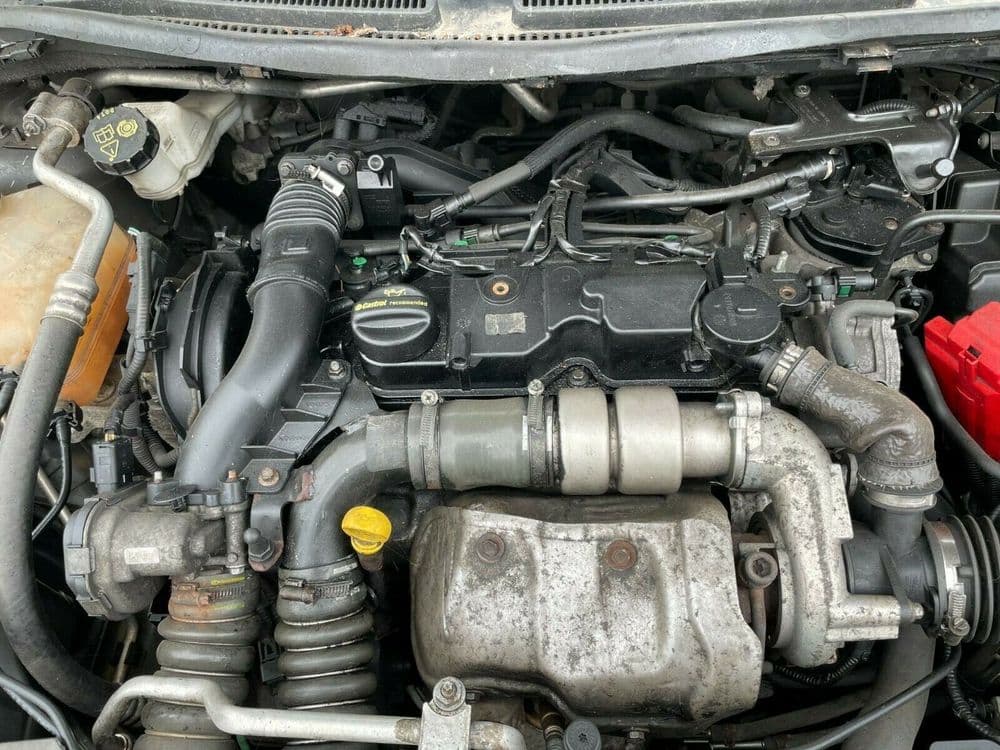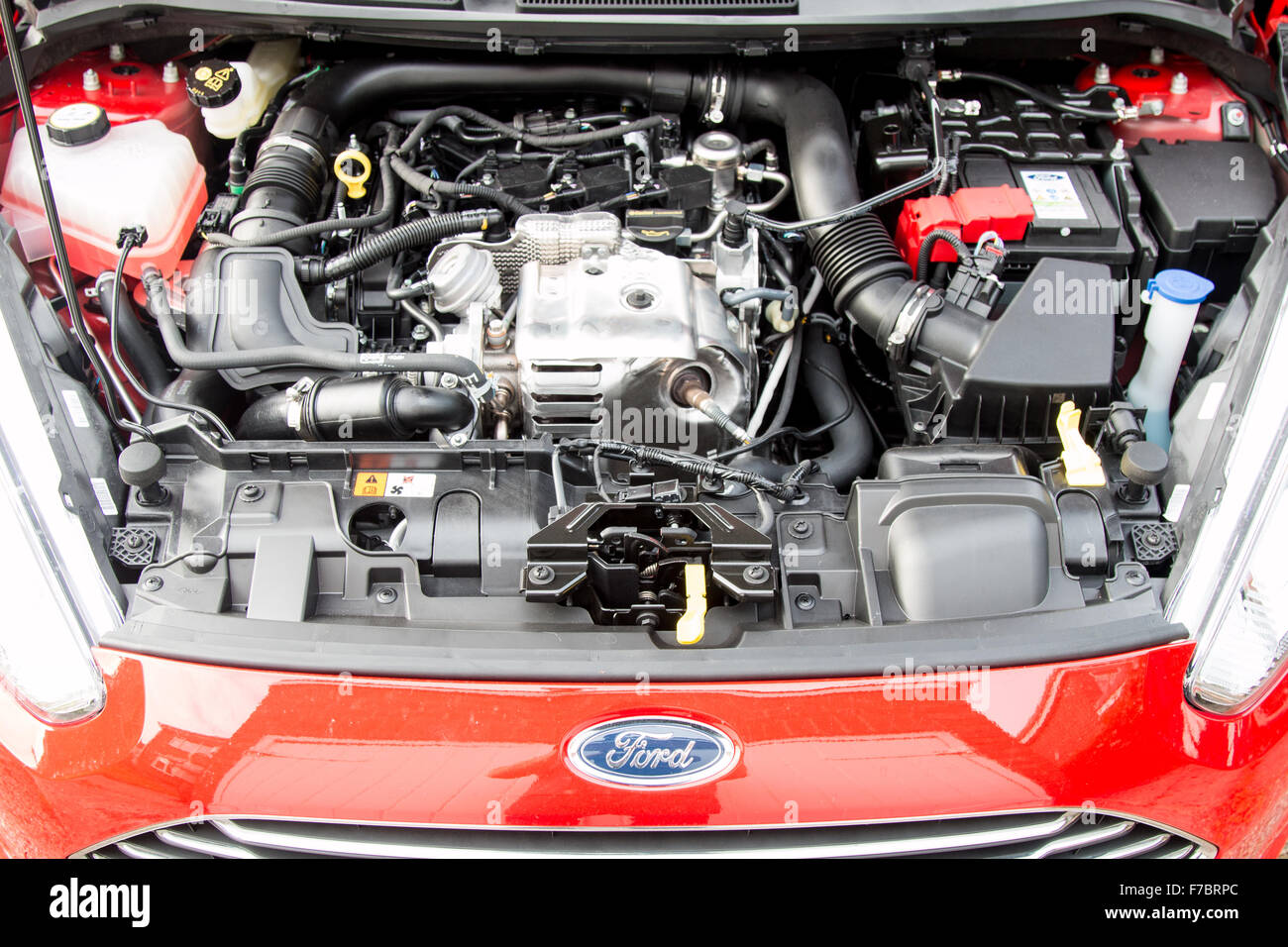Top Ford Fiesta Engine Repairs to Avoid Costly Damage
Top Ford Fiesta Engine Repairs to Avoid Costly Damage
Blog Article
Opening the Power of Engines: A Comprehensive Overview to Performance and Performance
Recognizing the complex auto mechanics of engines is important for both performance enthusiasts and day-to-day drivers. By checking out vital metrics such as horse power and torque, one can appreciate how adjusting techniques enhance efficiency while dealing with environmental concerns. Normal upkeep plays a crucial function in maintaining optimum performance over time. As the auto landscape shifts towards electrification and advanced innovations, the concern arises: exactly how can we properly adjust to these modifications while making best use of engine abilities? The responses may redefine our approach to engine efficiency and efficiency in ways that are both enlightening and crucial.
Understanding Engine Basics
What constitutes the essential mechanics of an engine? At its core, an engine is an equipment developed to transform gas right into mechanical power with a series of regulated surges or burning processes.
The crankshaft then changes this straight motion into rotational power, which ultimately powers the lorry. The camshaft regulates the opening and closing of the valves, managing the consumption of air and gas and the expulsion of exhaust gases. In addition, the engine relies upon a meticulously adjusted fuel-air mixture, ignition system, and cooling system to make certain optimal performance and performance.
Recognizing engine fundamentals likewise includes recognizing the value of engine cycles, such as the four-stroke cycle, which consists of consumption, power, compression, and exhaust strokes. Each phase is essential in making certain the engine operates efficiently and properly. Proficiency of these essential mechanics prepares for discovering a lot more intricate engine dynamics and performance metrics, essential for maximizing both power output and performance.
Secret Efficiency Metrics
Trick efficiency metrics are important for examining an engine's performance and power outcome, providing useful insights for both consumers and producers. These metrics function as standards for engine performance, permitting educated decisions in buying, manufacturing, and style.
One of the main metrics is horse power, which measures the engine's capacity to perform job over time. Torque, gauged in pound-feet, is another vital metric that suggests the engine's rotational pressure, directly impacting velocity and towing capability. Fuel effectiveness, generally determined in miles per gallon (MPG) or liters per 100 kilometers (L/100km), examines how efficiently the engine transforms fuel into activity, impacting environmental considerations and operational costs.
Furthermore, thermal effectiveness measures exactly how well an engine transforms fuel power into beneficial job, revealing insights right into power losses mainly via heat. Exhaust levels, including CO2 and NOx, are likewise essential, reflecting the engine's ecological impact and compliance with regulatory standards.

Tuning Strategies for Effectiveness
Tuning techniques play a considerable function in boosting engine efficiency by enhancing performance metrics determined in earlier conversations (ford fiesta engine). Numerous approaches exist to fine-tune an engine, each adding to boosted gas economic situation and reduced exhausts
One effective method is changing the air-fuel ratio, guaranteeing the engine runs within the optimal combustion routine. A leaner blend can boost gas efficiency, yet it should be stabilized to avoid misfires or engine knock. In addition, reprogramming the engine monitoring system can rectify specifications check that such as ignition timing, which even more enhances performance while maintaining power outcome.
Another essential approach includes modifying the intake and exhaust systems. Upgrading to high-performance air filters and exhaust headers can reduce back pressure, assisting in much better air movement. This allows the engine to take a breath more easily, leading to boosted combustion performance.
Additionally, the execution of sophisticated adjusting devices, like dyno screening, gives specific information that allows targeted modifications. On a regular basis keeping track of these performance metrics guarantees that tuning initiatives produce the preferred efficiency end results. Collectively, these strategies not only reinforce engine performance yet additionally add to lasting sustainability in engine operations.
Upkeep for Optimum Performance
Routine engine upkeep is important for this achieving ideal performance and long life. A well-kept engine not just runs efficiently yet likewise decreases the risk of expensive repair work and breakdowns. Key parts needing normal focus consist of oil, filters, belts, and ignition system.
Changing the engine oil at recommended intervals is vital, as oil lubes moving components and prevents getting too hot. Similarly, replacing oil and air filters guarantees that impurities do not impair engine feature. Disregarding these components can bring about lowered performance and prospective engine damages.
In addition, inspecting and replacing used belts and pipes is essential to avoid abrupt failures. Timing belts, in specific, ought to be changed according to the manufacturer's routine to prevent disastrous engine damage.
Spark plugs should additionally be examined and changed as essential, considering that they play an important role in ignition and gas effectiveness.
Future Patterns in Engine Technology
Accepting improvements in innovation, the future of engine design is poised to change performance and effectiveness throughout different applications. One of one of the most considerable patterns is the change toward electrification. Hybrid and completely electrical powertrains are becoming significantly traditional, offering lowered discharges and boosted gas effectiveness. This transition is not just a trend however a necessity driven by regulative stress and consumer need for sustainable services.
Additionally, innovations in products science are leading to lighter, more powerful parts that boost engine performance while decreasing energy consumption. Advanced production methods, such as 3D printing, permit for the development of complicated geometries that boost air flow and thermal management, hence enhancing burning processes.
Furthermore, the combination of expert system and artificial intelligence is readied to change why not find out more engine diagnostics and efficiency tuning. These modern technologies can examine vast quantities of information in genuine time, making it possible for predictive maintenance and tailored performance improvements.
Final Thought
In verdict, unlocking the power of engines calls for a complete understanding of their mechanics and efficiency metrics. Applying efficient tuning techniques and sticking to normal maintenance practices dramatically improve engine abilities.
In addition, the engine depends on a carefully calibrated fuel-air mix, ignition system, and cooling down system to make sure ideal performance and efficiency.
Understanding engine fundamentals also includes acknowledging the value of engine cycles, such as the four-stroke cycle, which consists of intake, compression, exhaust, and power strokes. Proficiency of these fundamental mechanics lays the foundation for checking out much more complex engine dynamics and performance metrics, important for optimizing both power outcome and efficiency.

Welcoming improvements in innovation, the future of engine layout is poised to change efficiency and performance across different applications.
Report this page